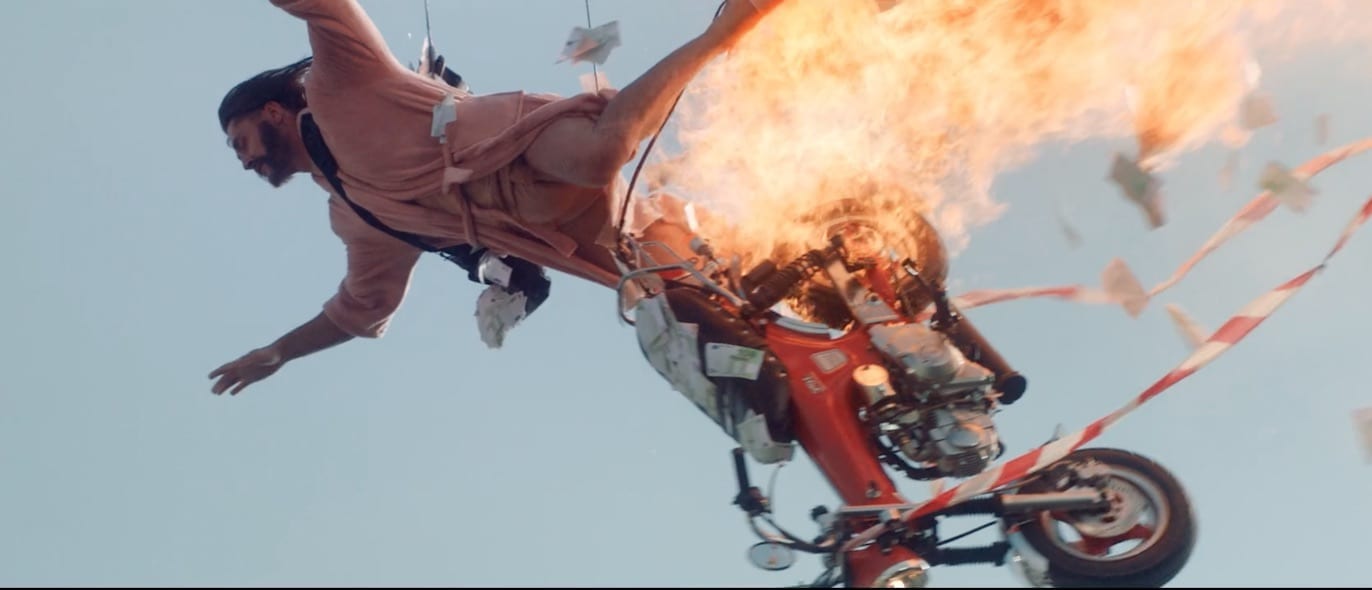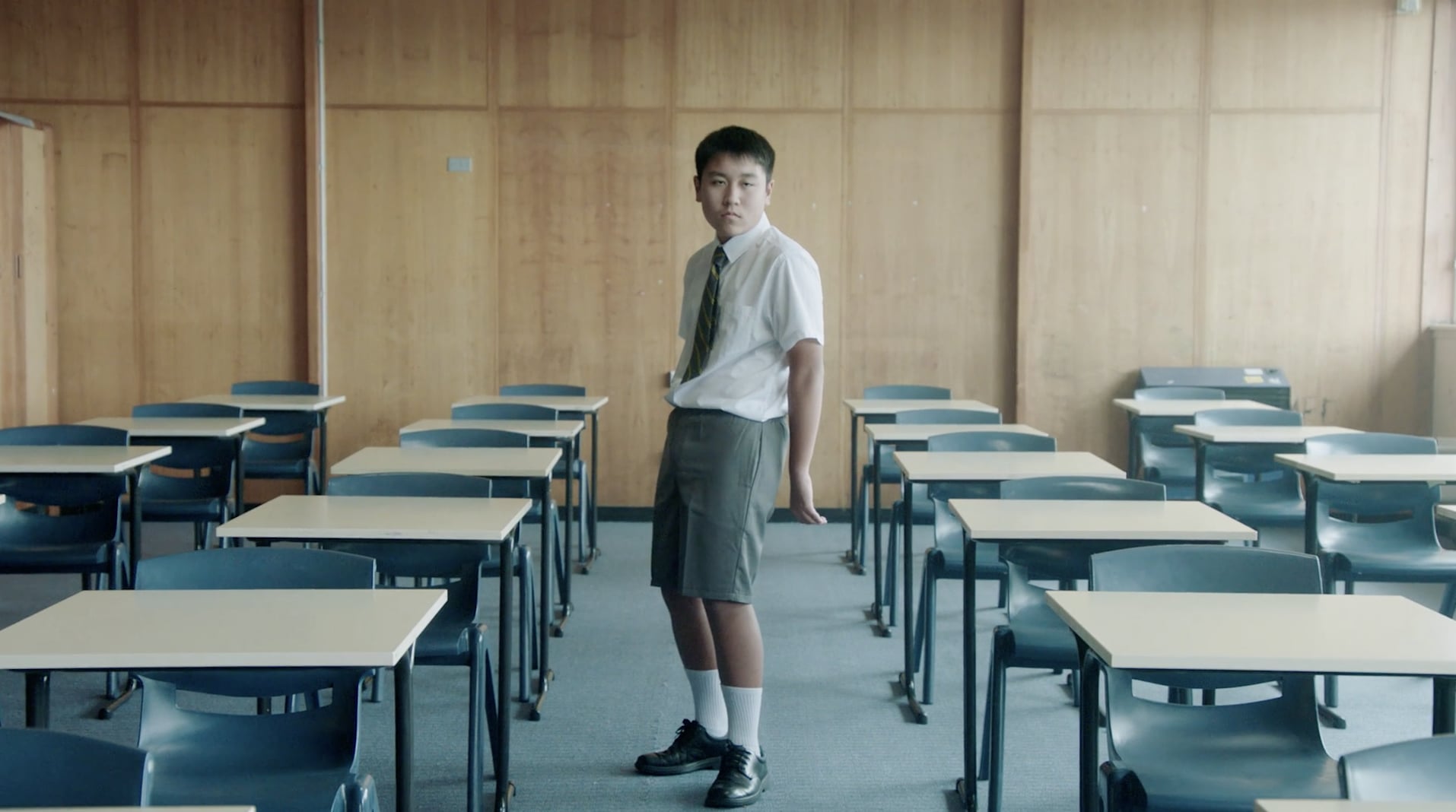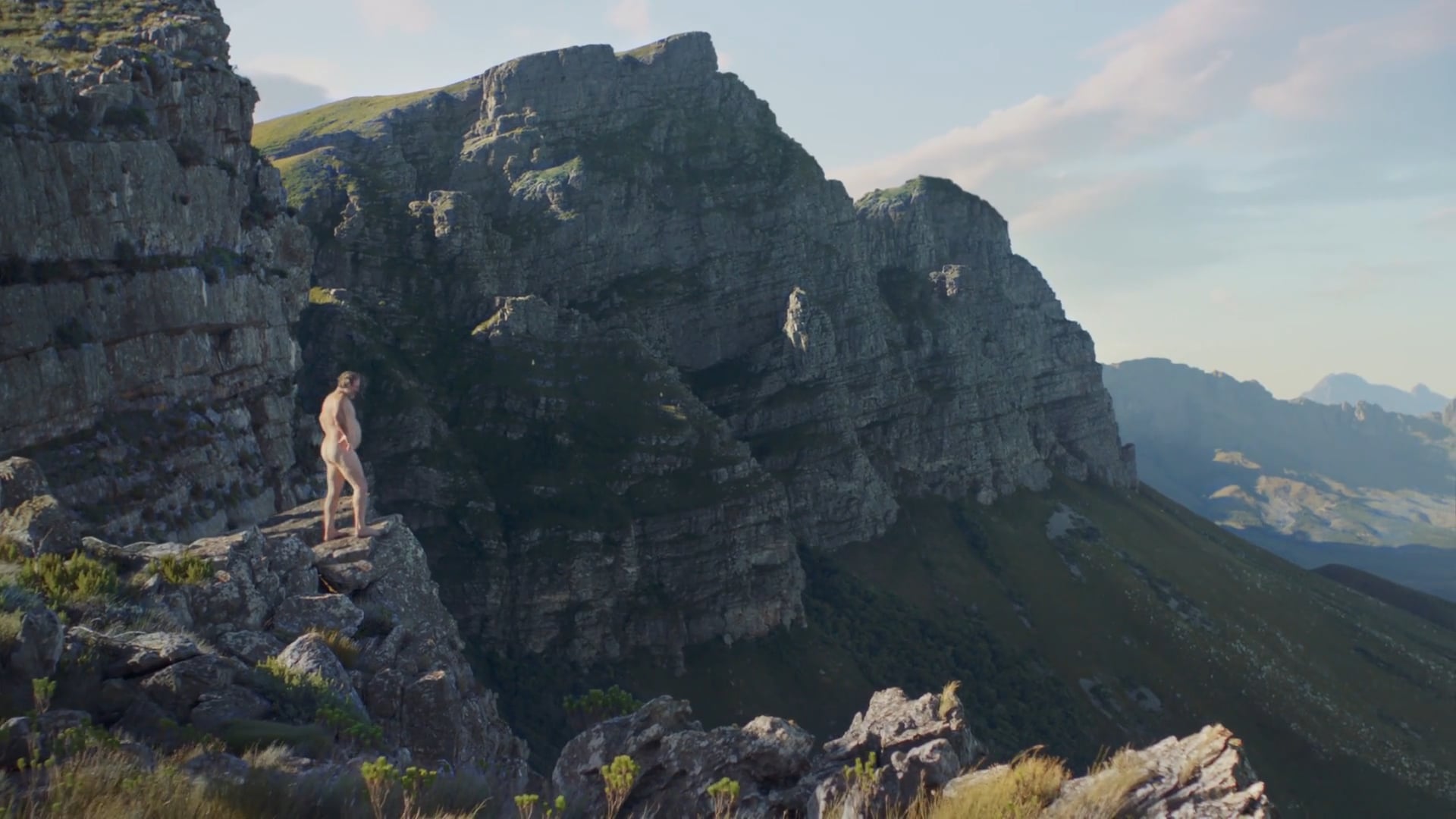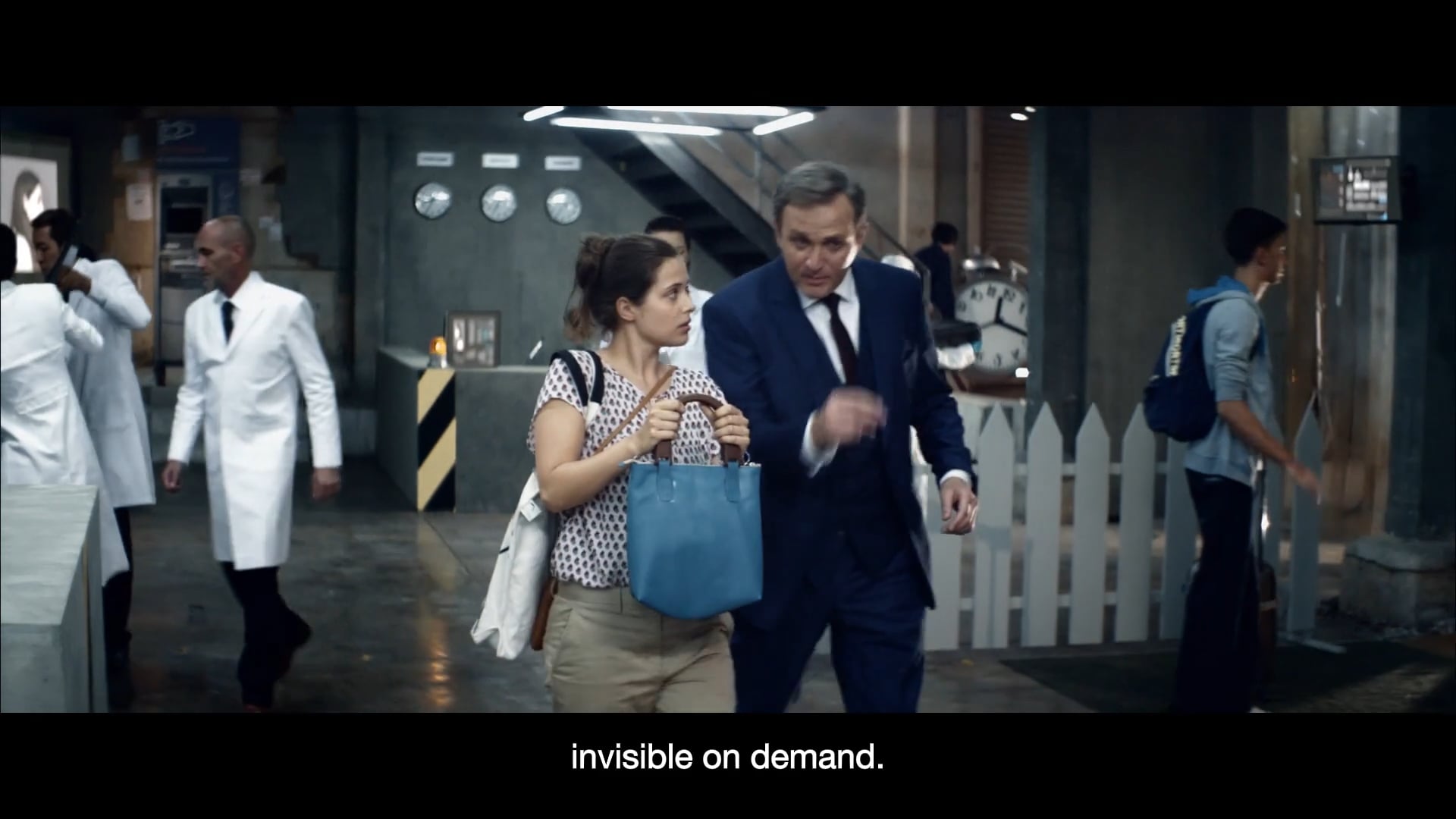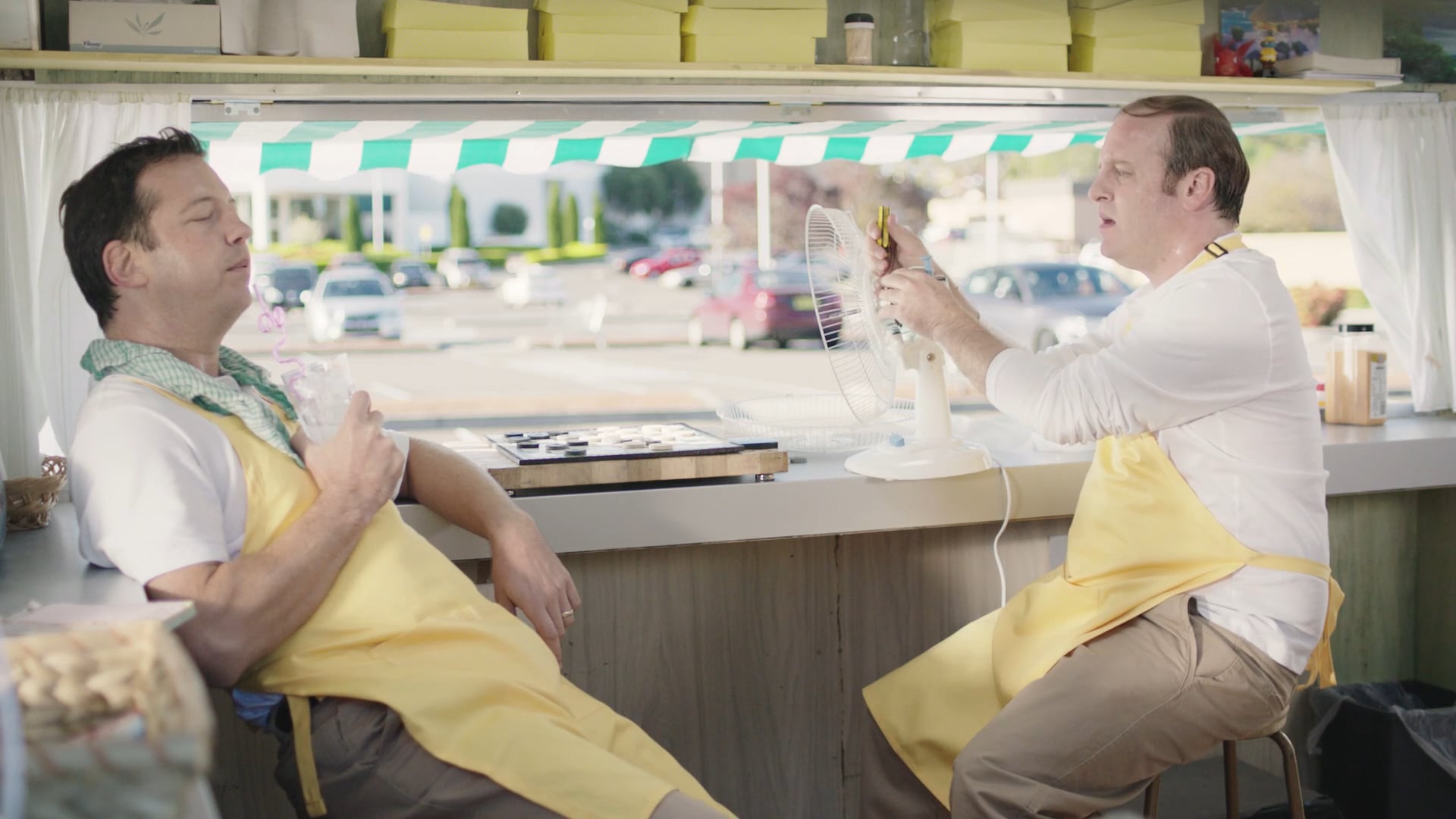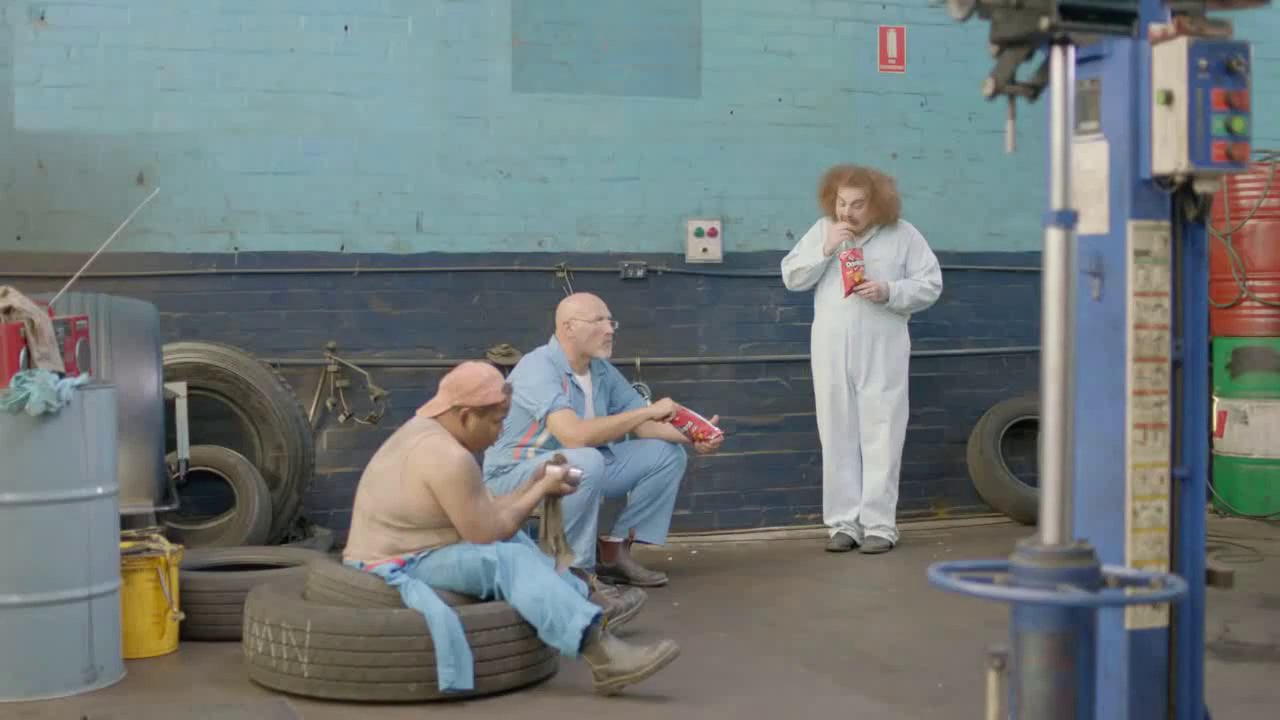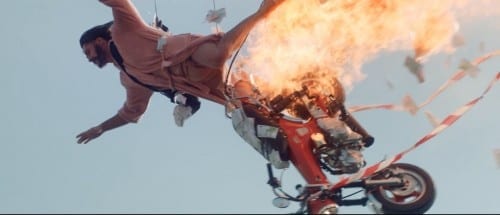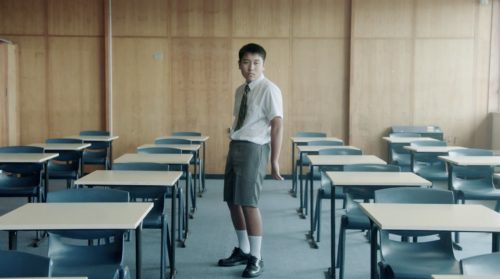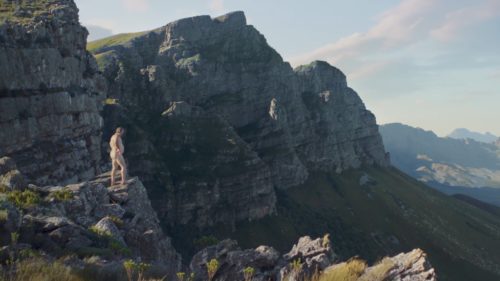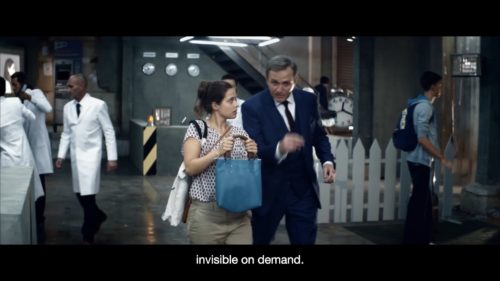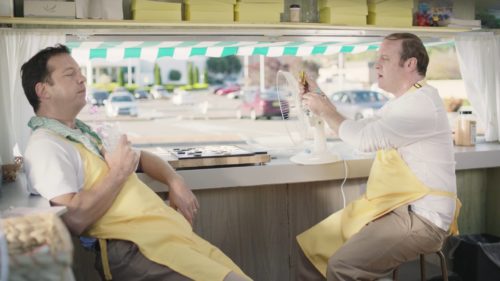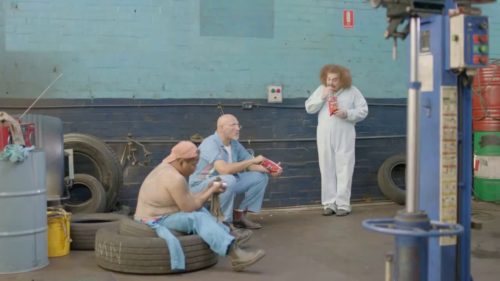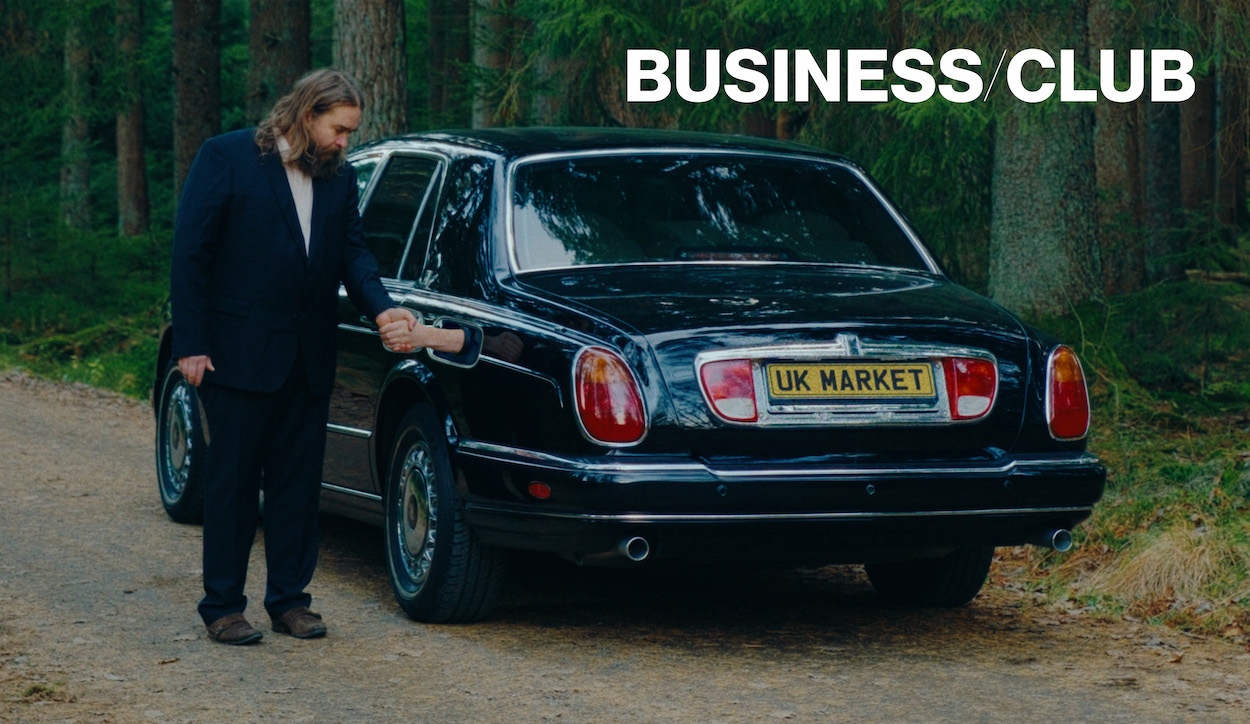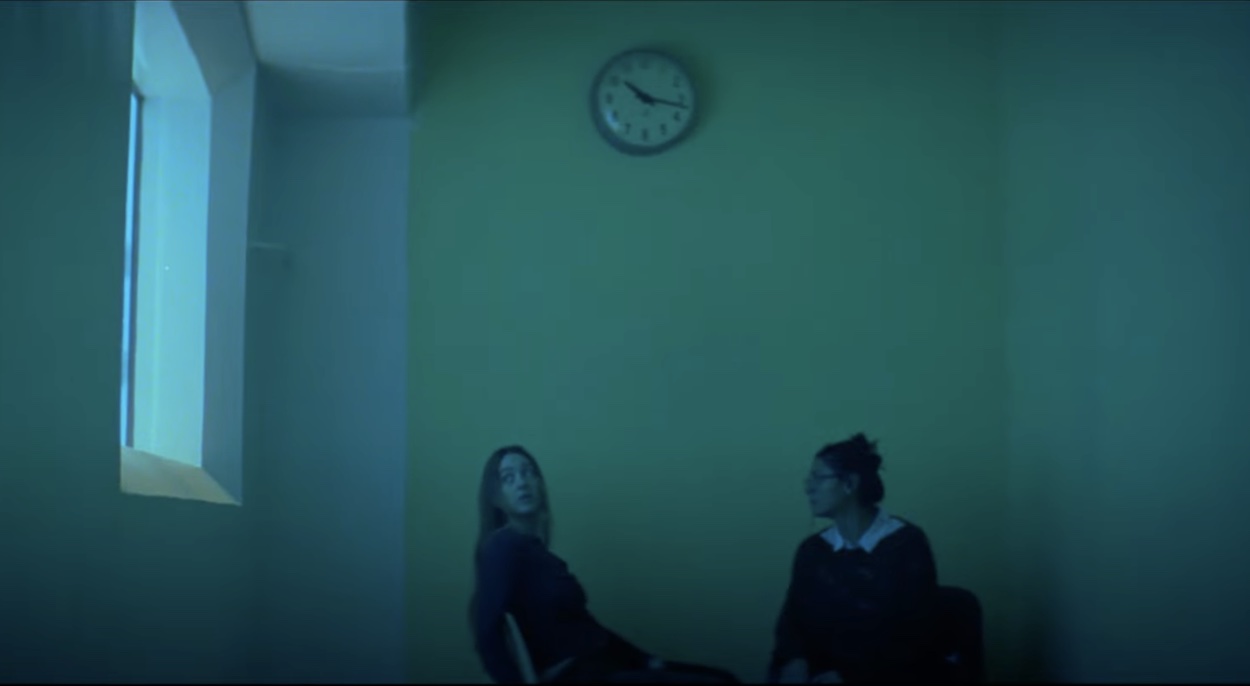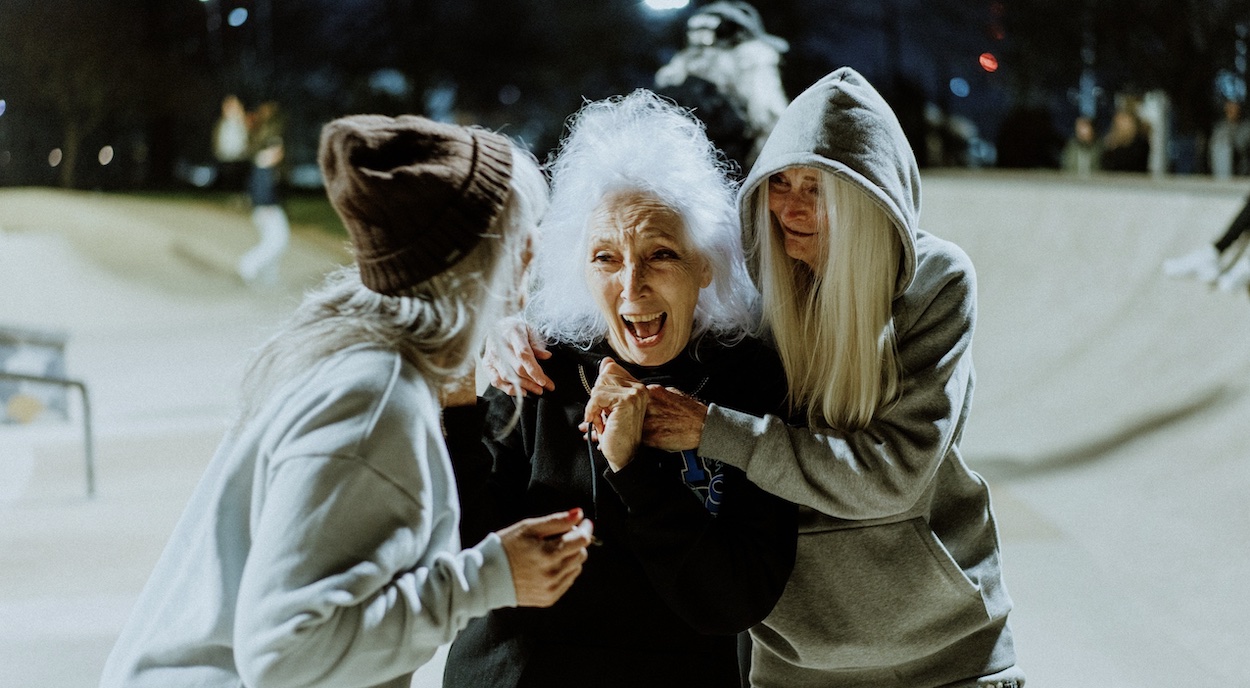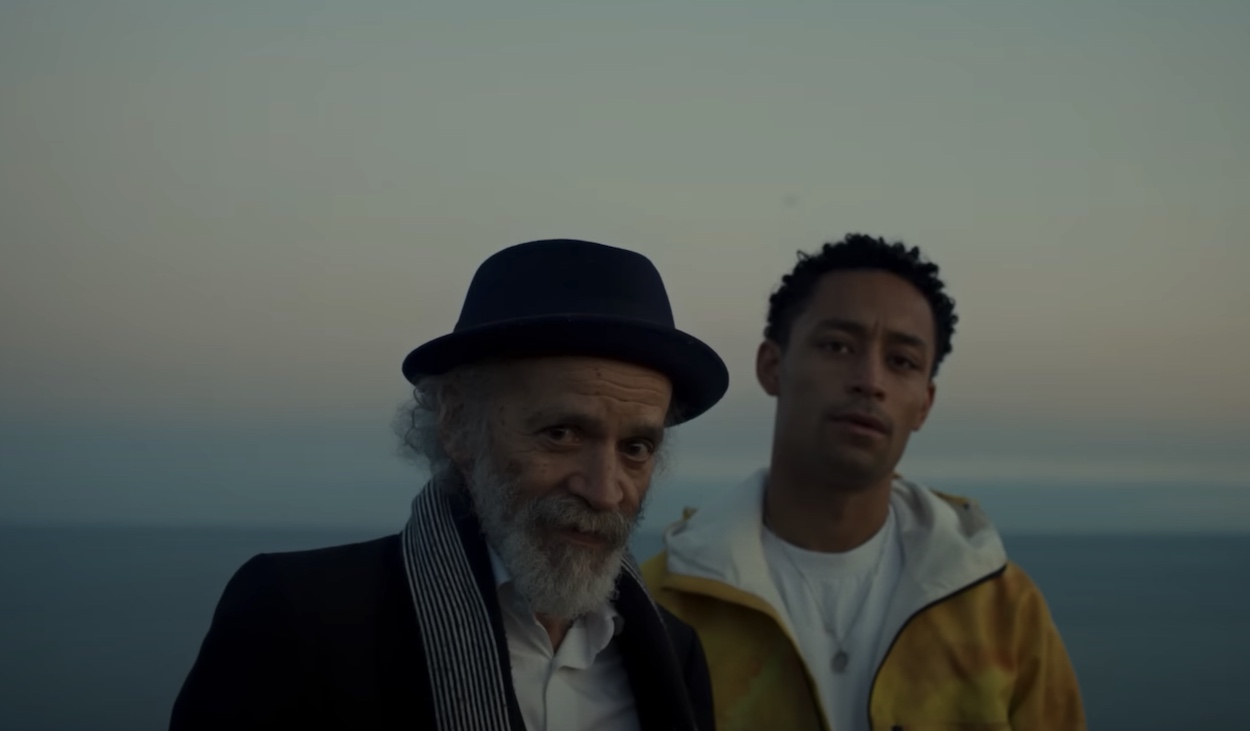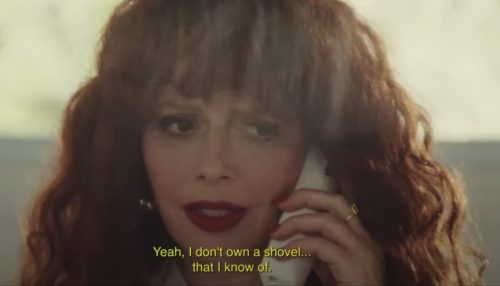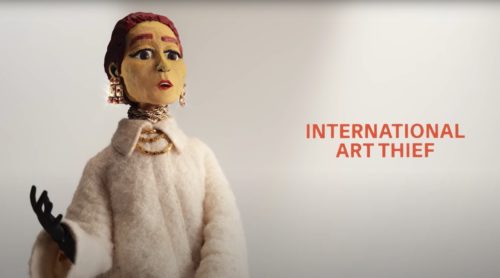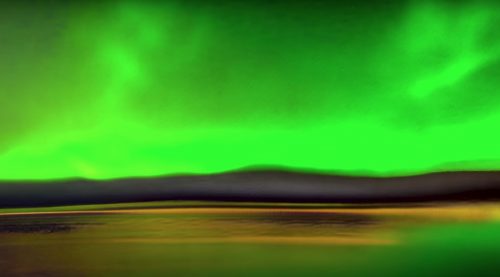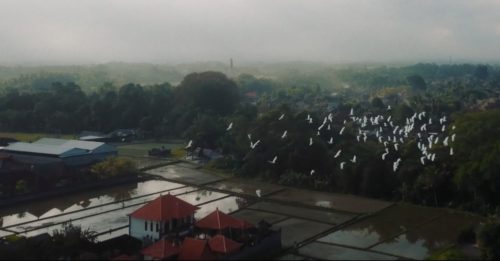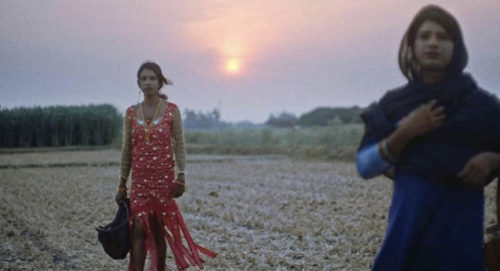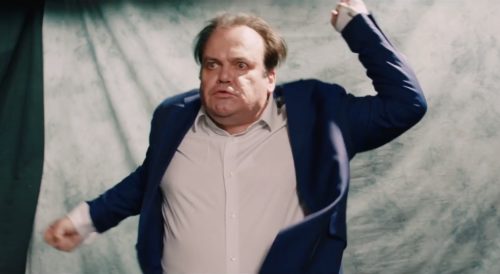Please describe your childhood.
Aside from ‘Charlie and the Chocolate Factory’ I didn’t have a cinema-rich childhood. Instead I mucked about skating and filming skating around my coastal hometown, Sunshine Coast – Australia. I lugged around this big mini-DV thing everywhere and filmed everything and everybody. Imma creeeeep.
The old Transworld vids ‘Modus Operandi’ & ‘Sight Unseen’ had a massive influence; they captured this unique tone and spirit. Always with banging soundtracks. Thinking back, it was a really unexpected education and introduction to filmmaking language.
When I was around 11-years-old’ish I built a Frankenstein PC to edit on and cranked out these silly skate clips. From there I really fell in love with the process and I haven’t looked back. Damn. That’s a long time ago.
At what point did you realise you wanted to become a filmmaker?
I’ve always had camera in my hand as long as I can remember so it was this natural evolution. Not really sure if you call that an evolution. A natural progression maybe?
So I only applied for one University course in the nearest city about an hour away, which in retrospect was really stupid; my one egg in one basket. The course was highly selective and all I had were these silly Skate clips. Mum drove me to the interview and I made a bunch of lecturer’s watch skate vids from a VHS player.
Fortunately, I got in! One eggie paid off. But I had no idea what a ‘filmmaker’ really was. I just loved the medium and knew how to shoot and edit. Only during the undergraduate did I begin to understand the mechanics behind a feature film and what each department did.
The earliest film of yours shown on 1.4 was a brilliant off the wall Doritos spot for Crash the Superbowl in 2013. Since then your work has always been funny, sometimes dark narratives, sometimes deadpan warmly weird, sometimes hilarious visual gags, in fact each film is completely different in tone with no apparent formula. What do you think are the key pointers to making comedy?
After Doritos I was pigeonholed as a deadpan/oddball comedy director, whereas I’m actually driven by cinematic concepts that elicit an emotion. Especially when those emotions misbehave and you throw the audience into this strange purgatory between genre’s and there’s all these reactions mingling and mixing that aren’t often in the same room together – so you’re laughing but inspired and then pity and gloom show up and it’s all a bit strange but it’s that emotional confusion that’s refreshing.
I’m not sure if that’s what I’m making, or if that even make sense, but it’s definitely what interests me! Lots of the work I’m currently pursuing isn’t strictly comedy although it might have that odd and unhinged flavour to it.
I mostly listen to my gut. I’m literate in gut talk.
Does your creative process change from film to film? For instance how did the process differ from creating a) the music video Tulips for Tigerilla and b) the commercial Alive for Hornbach? How did you evolve the original scripts?
I mostly sit in my little writing studio and stare at the wall till I hate myself and hopefully squeeze something out of my stubborn broken-record brain. Tripping the needle with coffee and music.
Tigerilla was born out of a mate’s dance, or whatever you call that weird hip pendulum. Tigerilla wanted to include the Cologne in a school setting – so I went full ham and pitched him back this –
A student shares an intimate dance off with the object of his affection; his math teacher. They shimmy on the spot like streetfighter characters if you didn’t touch the controls but their intensity manifests in other mysterious ways.
He was generous enough to just leave me to it and nek-minut, he’s got this clip. This weird disfigured clip. His new roommate. Ha.
I’ve pitched on a couple of Hornbach spots now and Guido Heffels from Heimat truly welcomes a director’s vision and input. Hornbach always briefs a strong message but they’re open to cinematic interpretation.
For the ‘You’re Alive, do you remember?’ I pitched a completely different approach involving this operatic naked interpretive dance but the client wasn’t psyched on it, so overnight I revisited the treatment and bashed out my ‘day spa’ approach – reimagining this haptic experience like some masochistic-day-spa where it hurts but feels goooooooewwwwddddd.
After that I storyboarded about five completely different ways to explore that metaphor and eventually arrived at the spot as is, nearly edit for board.
I’m grateful to attract a lot of open briefs from agencies and it’s a pleasure to have the freedom to unpack and rebuild ideas.
Your casting is quirky but spot on – how do you go about finding your characters?
I’d love to say those are all just family members with prosthetics, but the unsung heroes are really the casting directors I have the pleasure of working with.
Of all the processes it’s the most frightening to me because no matter what you do, you cannot control who walks in that room. It’s completely unpredictable and rich with human mess. Fortunately for me there are two amazing Australian casting directors Danny Long & i4 have been instrumental in this process and unfortunately for them, it’s a case of me pestering and hassling until we find the right person. It comes down to numbers and time, the more of both usually produces better results.
Oh and getting in the room! Man. I’ve only ever cast once over Skype and it did not go in my favour. I can’t stress the value in workshopping face to face.
Do you prefer working by yourself or collaborating? Do you work with a regular crew and editor?
Two souls that have enriched my life, in and outside of filmmaking, are Lucy Gaffy and Will Goodfellow who I had the good fortune of meeting in the undergrad thanks to my VHS skate vids and single egg baskets. They are my life long collaborators and after a decade we’ve finally launched GOONO (goono.tv), an original screen content company.
James Brown, an incredible Australian cinematographer who I met during post-grad studies at AFTRS, and the uncompromising producer Belinda Dean, had a huge hand in creating my formative commercial work in Australia. I’m still forging relationships with overseas crews and it reminds me how grateful I am to have found creative kin at home, and can’t imagine doing this alone!
Which piece of work has been the most challenging and how did you resolve that?
I seem to have an unhealthy and traumatic attraction to really complicated projects. All wonderfully unique snowflakes of balding horror. Production wise I’d say that Hornbach was the most challenging because I demanded that we shoot it all in camera; to remind audiences of the textures and senses of building stuff, to be outside and sweaty and muddy and covered in dust and so naturally you don’t want to betray that with VFX. So that’s really a naked dude throwing himself through all that stuff. It’s not VFX. Only the wide grass shot required extending because we couldn’t afford to pave the whole mountain in grass rolls.
Oh yeah and the incredible actor Wayne Harrison wasn’t a stuntman! We did have a body stunt double but it was mostly Wayne who sacrificed himself down piles of wood and exploded into mud pools and on dragged at highspeeds atop grass. He was incredibly generous and brave and kinda crazy to do that but it worked!
At one point I was jabbing his butt with a nail glued to a Perspex rod while he was naked and swinging his ass out in a forest. A car drove past that wasn’t part of production and we put a show on. You’re welcome.
Do you storyboard in detail before a shoot? Or do narratives often come together in an unexpected way in the edit?
It’s not a leap of faith to me. When you’re counting down the screen seconds and trying to tell these complicated stories, it just seems responsible to storyboard and sometimes cut an animatic. I’m a visual person. Spot goes to the park. Spot can run fast.
What’s your favourite part of the film making process and which process do you find the most challenging?
Writing and cracking ideas. That’s the good stuff. The elation and euphoria is unmatched. You got nothing, then bam! Something. It’s addictive, and I’ll be chasing that feel-good forever.
Once the honeymoon’s over, then you challenge the idea and rewrite it and start translating it into a finished product and it becomes really traumatic. You ask so much from beautiful and overworked crews, and you never have enough time or money and so you neglect this pure child.
And the first cut! I’m not a dad but I imagine it’s what it must feel like if your kid gets arrested, or gets really shitty grades. But you slowly start to love this criminal and adjust your preconceptions. And then years pass and you look back and think yeah cool. That’s okay. That’s not that bad. Okay. I’m a good dad. I guess.
And strangely, it’s worth doing. Despite all the emotional highs and lows and trauma and shame and compromise it’s all worth it and the rollercoaster makes that experience unforgettable, so you do it again.
Talking about dark humour – please tell us about the mini tv series, Corn Cobs, about two “sweet seeming sociopaths”? You co-wrote and directed the three episodes for Australia’s New Blood series. Do you wish to pursue writing scripts for series or perhaps a feature?
Oh man the question before this totally describes that whole experience! I shared Corn Cobs with Matt Kamen and Will Goodfellow, alongside producers Chris Kamen and Belinda Dean. We put so much effort and time into those (combined) 8 minutes! It’s absurd. So we had these insane unmet expectations and I wish we had persisted with the other episodes we wrote! They’re bolder and stranger than the first 3, which were just the setup episodes. That was the biggest lesson out of that. Persevere.
Yeah! Narrative screen content’s always cooking. Will Goodfellow has penned a feature we’re working on at GOONO (Goono.tv) and there’s some chatter about writing a low budget TV series by the end of the year.
What’s on your agenda for the future? Do you have any personal projects on the go?
I’m still spinning from signing to PrettyBird for UK & US representation. I couldn’t have hoped to be in better company, so we’re in the throes of pitching and sinking teeth into projects. So stoked!
What I’m most excited about is a short film ‘Metalhead,’ written by Will Goodfellow and produced by Lucy Gaffy under GOONO. It’s one of the best short scripts I’ve ever read. Pure and powerful cinema.
And then there’s a couple of clips orbiting.
You work between Australia and Europe. Are they completely different worlds and mindsets to live and work in?
Not really! It’s always scrambled eggs no matter which side of the river I’m on. Errrbody loves the circus but we have funny accents apparently. Yeah na.
Anything else you’d like to share?
Maybe I overshared? Yeah big ups to you guys! 1.4 is all time errtime errday. You’ve enlightened me to lots of things I would have otherwise never seen. So thank you x
LINK:
27th February 2017
Literate in gut talk
Title of film: SNCF, Phoenix Cascadeur
Director: Tom Noakes
There’s nobody like Tom Noakes, just read his interview and look at his work and you’ll see what we mean. He can pull off epic stunt work for commercials and then create a brilliant dead-pan dance-off music video for Tigerilla. We quizzed the director about life since his Australian childhood to being signed to Prettybird for UK and US.
Credits
Tigerilla, TULIPS ft. Gill Bates
Director: Tom Noakes
Produced by Belinda Dean, GOONO.tv
In association with unko and Scoundrel Films.
Starring:
Ethan Dzang – Student
Karina Bracken - Teacher
Brock Fitzgerald – Janitor
Casting by Daisy Hicks @ i4 Casting
James Brown – Cinematographer
Antony Miller – Art Department
Naomi Enfield – 1st AD
Justin Besser – Steadicam operator
Scott Leeson – Gaffer
Mark Leeson – Best Boy
Elisa Heimann – Standby Wardrobe
Rob Tench - 1st AC
Nikki Gooley – Make up
Jennifer Collier – Production Coordinator
Lucy Hutton - Runner
Hornbach, You're Alive. Do You Remember?
Agency: Heimat Berlin
Executive Creative Director: Guido Heffels
Agency Producer: Kirsten Heffels
Copywriter: Marlon Fischer
Account Director: Tim Holtköetter
Production Company: Partizan
Director: Tom Noakes
Executive Producer: Moritz Merkel
Producer: Swenja Babucke
DoP: Antonio Paladino
Production Designer: Fiona Crombie
Editor: Nils Landmark
Composer: Thomas Berlin
VFX: TED & FLO
